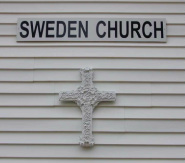By the time he goes to Nazareth Jesus has quite a following. He has performed miracles, healed the sick, and driven out devils. He is so sought after that it’s hard for him to find enough space to stand and preach. Now, he’s home. To preach in the synagogue. Friends and neighbors, perhaps family, turn out to hear him.
But the reception turns out to be a chilly one. The locals just can’t believe this is the same guy. After all, Nazareth was a small town and, everyone knew everyone else’s business. It may be the Jesus they grew up with but it couldn’t be the One spoken of by the prophet Isaiah (Isaiah 61). That’s where they drew the line.
It says in Mark 1:6 that he, Jesus, marveled at their unbelief. Even Jesus was stunned by their refusal to believe. There were few enough believers that only a few healings took place. Such a sad turn of events, the ones Jesus knew from his youth had no faith that he was the redeemer.
Then and now, not much has changed. People have a belief in their own power, their own decisions, their own plans. Accepting Jesus as a personal savior, deciding to be more like him, and following his will; takes an acknowledgement that Jesus is truly the Messiah. That all power (authority) has been given to Jesus in heaven and in earth (Matthew 28:18).
It’s true. People do have personal power. It’s also true that Jesus has authority over everything. It’s how personal power is used that matters. George Washington Carver answered “What is my success? It is simple. The Bible, “In all thy ways acknowledge him, and he shall direct they paths.” (Proverbs 3:6)
“The Bible is the truest utterance that ever came by alphabetic letters from the soul of man, through which, as through a window divinely opened, all men can look into the stillness of eternity, and discern in glimpses their far-distant, long-forgotten home.” –Thomas Carlyle
